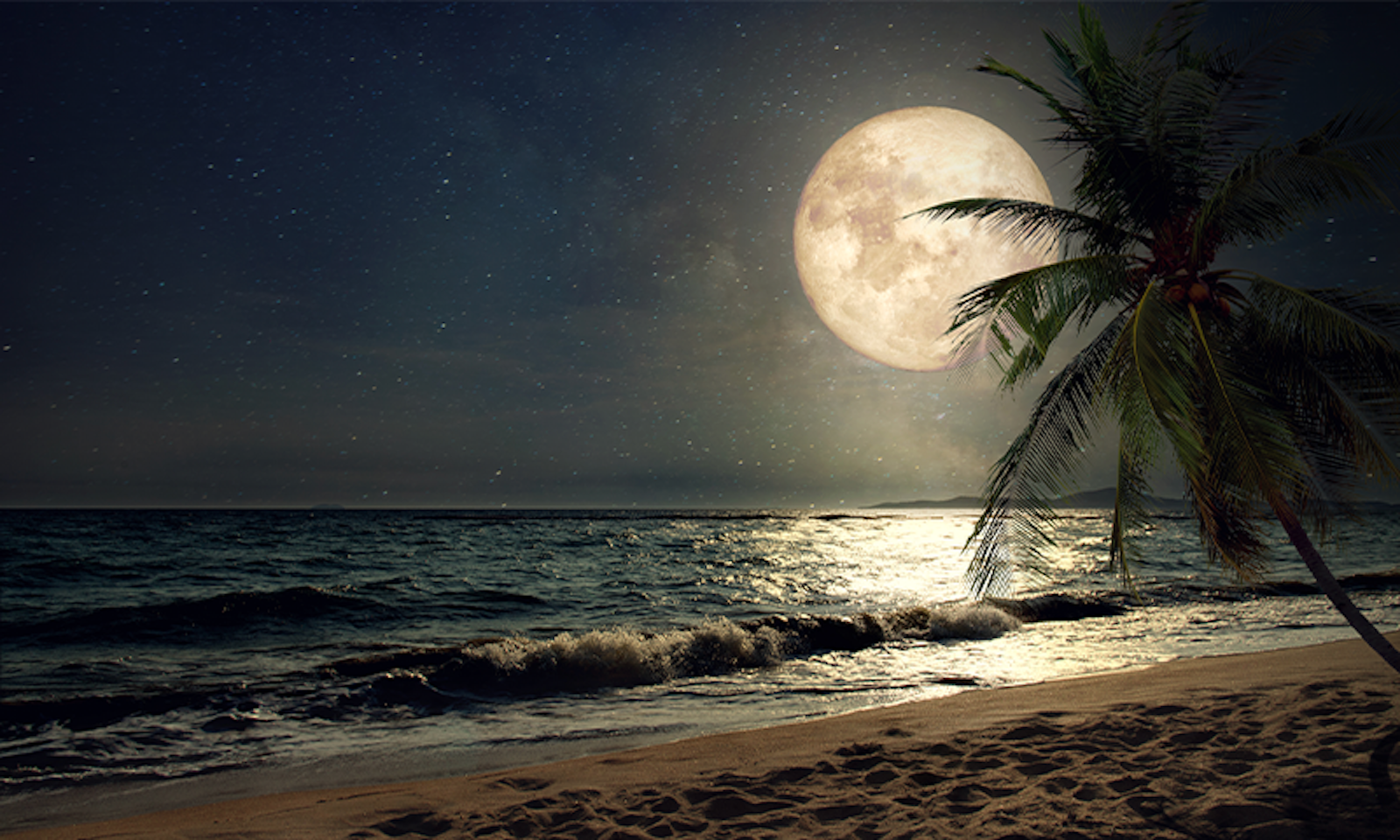1 The Moon Affects Life In Profound Ways
The moon is responsible for giant leaps we have made as a species. And, it turns out, for many other species as well. Before writing Our Moon, I knew that corals use moonlight to synchronize their mating. But what I did not know was how profoundly the moon affects other creatures’ biology, from wildebeest on the Serengeti to humans ourselves. I was surprised at the likelihood that the moon influenced the evolution of life, whether in the deep ocean along rifts in the planet’s crust or in “warm little pools” as Charles Darwin imagined. The moon may have, with its tides, even dragged backboned animals out of the sea and onto the land, where they evolved into everything that has ever walked on Earth.

The idea of moon-driven tidal effects on vertebrate evolution makes intuitive sense, but it wasn’t until very recently that paleontologists and paleoceanographers started doing the necessary research to correlate the two. I started looking into this after I read an interesting research paper about coral growth rings, which showed some 400 million years ago, Earth’s day was 20 hours long. This demonstrates that the moon was closer then. We know this because Earth’s day is lengthening as the moon moves away from us over time due to a principle known as the conservation of angular momentum—basically the spin of our planet will only be impacted by another celestial force (in this case, the tidal pull of the moon). If the moon was closer hundreds of millions of years ago, I wondered what implications its nearness would have on the tide. As it turned out, so did a British physicist who had published a paper on this very subject and calculated the height of tides in various paleocontinents.
The moon may have, with its tides, dragged animals out of the sea and onto the land.
An oceanography graduate student found this research, too, and started modeling ocean basins as well as the fossil record. Working with paleontologists and physicists, she determined that the closer moon, 380-320 million years ago, was driving very high tides at the same time the supercontinent of Pangea was forming. Tides would rise and fall by some 80 feet in just a few hours. The water rushed in and out so quickly that some fish were inevitably stranded. Fossils of bony fish from this era show a transition between water-dwelling animals and land-dwelling animals. So it looks like the moon probably played a major role in bringing our ancestors out of the sea.
2 Religion and Science Are Connected More Strongly Than You Think
I have been trained, as a science journalist, to think that science and religion are two very distinct ways of observing the universe—one based on empiricism and one based on the lack of it.
But I now think that empiricism itself, the idea of sense-based, evidentiary research, is derived from the earliest projects of human devotion. The Moon God was an important deity in many of the cultures throughout ancient Mesopotamia, the area that is now Iraq and parts of Iran and Syria. Astrologers through the millennia, from the Sumerians to the Assyrians to the Babylonians, were tasked with studying the moon for spiritual purposes, including to predict future events and conduct rituals. Over time, their observations served as a record of scientific data, which was used by the Greeks and the Persians to deduce information about the universe.
We literally crossed the boundary of heaven and went to another world.
I think the process of science—to mean the original experimental, observational science as conceived of in classical Greece and which flowered during the European Enlightenment—is actually derived from the spiritual need to understand the cosmos and our place in it. I think religion actually paves the way for science. They are both forms of informed worship, as Carl Sagan once wrote, and now I see how they are more related than not.
3 Apollo Was a Spiritual Experience
I did not want my book to be solely about the Apollo missions—but you can’t write a moon book without writing about Apollo, the project that brought us to the lunar surface for the first time. I spent a lot of time reading popular and academic history about the Apollo era as well as astronaut autobiographies and biographies. I came to think of Apollo as neither a scientific mission nor even a geopolitical mission, even though science was its end result and geopolitics were its motivation. I think Apollo was more like a modern form of religious worship.
The language used to describe the project was often accented with spirituality, I think because it was truly a transcendental event. We literally crossed the boundary of heaven and went to another world. It is a distant memory now—even people who were young when Apollo happened are, today, in late middle age—so it’s easy to forget how truly amazing and how awesome it was, in the old senses of those words. Humans left Earth and walked around on another world.
I felt the profound strangeness of the moon landings after I saw the moon rocks for myself. When I visited the Apollo samples, at NASA’s Lunar Sample Lab in Houston, I felt transformed. I was awed, chilled, and exalted by the presence of these rocks, which were so obviously not from Earth, but from another realm. I came to see the Apollo missions as marking the dawn of a new era, where the Earth became just one planet and humanity ourselves became like gods. We brought the moon down to Earth, and the Earth down to size. ![]()
Read an excerpt from Rebecca Boyle’s new book, Our Moon, here.
Lead image: jakkapan / Shutterstock
































